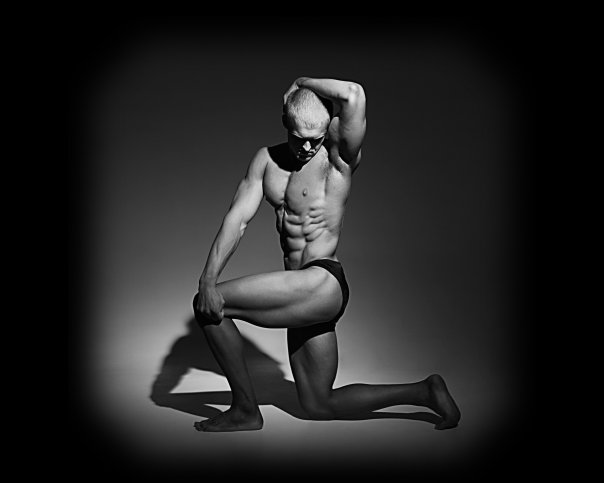The popularity of natural bodybuilding has greatly increased in the past decade. However, until recently very little research has been done on natural bodybuilders during contest preparation.
Prior to 2013, a pubmed search of “bodybuilding” resulted in studies on psychological disorders associated with bodybuilding and adverse events in bodybuilders using performance enhancing drugs. The few case studies on contest preparation performed prior to this time were primarily in bodybuilders competing in untested competitions and/or using performance enhancing drugs.
Fortunately, with the past few years three case studies have been published in male bodybuilders:
- Rossow et al. [1] studied a 26 year old professional natural bodybuilder during 6 month contest preparation and 6 month recovery. The competitor placed highly in competition and qualified for the IFPA Yorton Cup.
- Kistler et al. [2] studied a 26 year old natural bodybuilder during a 6 month contest preparation leading up to the competitor winning his natural pro card.
- Robinson et al. [3] studied a 21 year old amateur physique competitor during a 14 week contest preparing for his first competition. The competitor placed near the middle of his class.
- This month, Halliday et al. [4] published the first case study in a female competitor. They followed a 26 year old natural figure competitor during a 20 week contest preparation and 20 week recovery.
- Although these four case studies are the only peer-reviewed data available on natural physique competitors using science-based approaches to contest preparation and significantly more data is needed on this population, there are several lessons that can be learned from the available data.
1. Lean mass is lost during contest preparation in a natural athlete
It is not uncommon to hear competitors say they are going to add muscle and grow into a show. However, this does not appear to be possible in natural athletes. All 4 athletes studied lost lean mass during contest preparation. Lean mass accounted for 21-43 percent of weight loss in the athletes studied [1-4]. Although some of the lean mass loss was likely due to things such as water, glycogen and organ weight loss, there was also likely muscle mass as well based upon the relatively high percentage of weight lost as lean mass.
In addition, strength loss is common during contest preparation. The professional natural bodybuilder studied by Rossow et al. [1] had a squat, bench and deadlift 1 rep maximum of 464, 354 and 570 lbs, respectively. By the end of contest prep when the bodybuilder was stage-lean these maxes were reduced to 400, 324 and 530 lbs respectively. That is a 134 lb reduction in the athlete’s 3 lift total.
These studies show that building muscle into a show while still getting to stage-lean levels of body fat is not going to happen in a natural athlete. However, that does not mean that a natural athlete should slack in their training during contest prep. Instead, training should remain intense to hold onto as much strength and muscle mass as possible during contest preparation.
2. Longer preps are likely superior for muscle retention
The level of conditioning in natural bodybuilding competitions continues to increase. As a result, competitors now must reach even leaner levels of body composition to remain competitive, but at the same time retain as much muscle mass as possible.
A recent literature review on natural bodybuilding contest preparation recommended a rate of loss of 0.5 – 1.0 percent of body weight weekly to maximize muscle retention during contest preparation [5]. However, based upon recent case study data, 0.5 percent of body weight weekly may not result in the same muscle retention as 1.0 percent of body weight weekly. The table below compares the rates of loss (in average percent of starting body weight lost weekly) to the percent of weight lost as lean mass. Based upon these results, it does appear that slower rates of loss closer to 0.5 percent of body weight weekly may be superior for maximal muscle retention during contest prep.
| Study | Rate of Loss (% Bodyweight Weekly) |
Percent of Weight Loss |
|---|---|---|
| Male | ||
| Rossow et al. 2013 [1] | 0.52 | 21 |
| Kistler et al. 2014 [2] | 0.71 | 32 |
| Robinson et al. 2015 [3] | 0.98 | 43 |
| Female | ||
| Halliday et al. 2016 [4] | 0.46 | 22 |
These results suggest that longer and slower preps (around 0.5% of body weight lost weekly on average) may help natural athletes retain more muscle mass during contest preparation.
3. Hormone levels are significantly altered when stage-lean
Anyone who has been stage-lean knows that it doesn’t necessarily feel pleasant. This is due in part to a reduction in caloric intake, increase in cardio and simply being extremely lean. However, it is also due in part to a significant reduction in hormone levels.
The only recent case study to examine changes in hormone levels during contest preparation was Rossow et al. [1]. They observed a 75 percent reduction in testosterone levels during contest preparation. In addition, fasting insulin, leptin and thyroid hormone (T3) were reduced by 83, 47 and 45 percent, respectively. Moreover, cortisol doubled during contest preparation.
Similar data has been observed in a cohort of natural bodybuilders followed during contest preparation; however, this study has only been presented in abstract format and has yet to be published through the peer review process [6]. Nevertheless, it does provide further support of detrimental effects of contest preparation on hormone levels.
Moreover, in a recent study of a female competitor during contest preparation menstrual cycle abnormalities were observed within the first month of contest prep with the last menstrual cycle occurring at 11 weeks out from competition [4]. Menstrual cycle abnormalities were also observed in the aforementioned unpublished study [6].
Taken together it is clear that large hormonal changes occur during contest preparation, even during a successful contest preps using science-based approaches.
4. Hormones and metabolic rate may take longer to normalize after body fat is regained
Remaining stage-lean is not sustainable. Therefore, competitors need to increase caloric intake to gain body weight and body fat back during the post-competition period. Re-gaining body weight and body fat is necessary to increase energy and strength, normalize hormone levels and provide an overall mental break from a caloric deficit.
Rossow et al. [1] followed the male competitor during the recovery period from contest preparation. Interestingly, after body fat returned to pre-dieting levels hormones and metabolic rate both increased, but not quite to pre-diet levels.
Similarly, the female competitor in Halliday et al. [4] re-gained body weight and body fat to pre-diet levels by 5 months post-competition. However, the competitor’s menstrual cycle did not return until over 1 year post-competition providing further evidence that hormone levels may take more time to normalize after body weight and body fat is re-gained. Loss of menstrual cycle is muti-factorial. Not all women may respond in the same way.
In practice, one thing many coaches notice is that competitors who take short offseasons often have to push harder to get stage-lean during each prep performed without a sufficient offseason. This relationship between body fat re-gain and hormones may be in part to blame. If a competitor takes a short offseason, hormone levels may not have time to normalize prior to the next prep. Moreover, this may occur even if the competitor’s body fat levels returned to where they were before prep.
These data and observations suggest that competitors should be taking sufficient offseasons between contest preps to ensure that hormone levels return to normal prior to each subsequent contest prep.
Take Home Points
Until recently, very few studies have been performed on natural bodybuilders preparing for competition. Although much more research is needed on this population, there are some general trends emerging in the existing data.
Lean mass and strength losses are common during natural bodybuilding contest preparation. To minimize lean mass loss longer and slower diets are recommended. Based upon the currently case studies an average of roughly 0.5% of body weight weekly may be a desirable rate of loss during contest preparation for maximal muscle retention.
Significant change in a number of hormones occurs during contest preparation including: testosterone, thyroid hormone, leptin, grehlin, cortisol and others. In general, these hormones normalize when body weight and body fat is re-gained in the offseason. However, hormone levels may take longer to recover after body fat is regained. Therefore, competitors show take sufficient offseasons between contest preps to ensure hormone levels normalize prior to starting their next contest prep.
References
- Rossow, L.M., et al., Natural bodybuilding competition preparation and recovery: a 12-month case study. Int J Sports Physiol Perform, 2013. 8(5): p. 582-92.
- Kistler, B.M., et al., Case Study: Natural Bodybuilding Contest Preparation. Int J Sport Nutr Exerc Metab, 2014.
- Robinson, S.L., et al., A nutrition and conditioning intervention for natural bodybuilding contest preparation: case study. J Int Soc Sports Nutr, 2015. 12: p. 20.
- Halliday, T.M., J.P. Loenneke, and B.M. Davy, Dietary intake, body composition, and menstrual cycle changes during competition prepartion and recover in a drug-free figure competitior: a case study. . Nutrients, 2016. 8: p. 740.
- Helms, E.R., A.A. Aragon, and P.J. Fitschen, Evidence-based recommendations for natural bodybuilding contest preparation: nutrition and supplementation. J Int Soc Sports Nutr, 2014. 11: p. 20.
- Trexler, E.T., et al., Physiological changes following competition in male and female physique athletes: a pilot study. Journal of the International Socieity of Sports Nutrition, 2016. 13(Suppl 1): p. P14.

